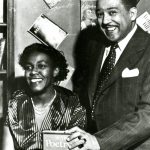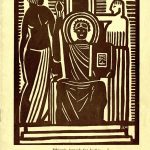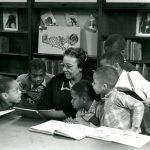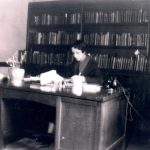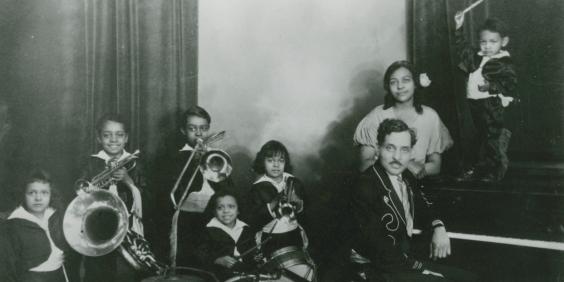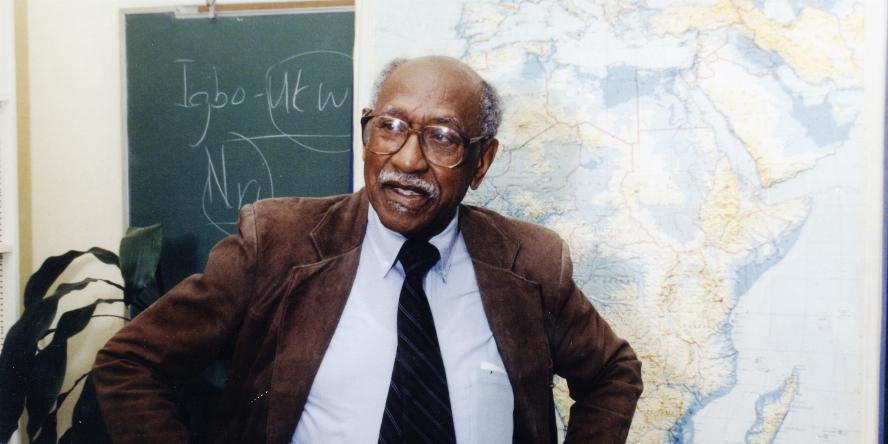George Cleveland Hall Branch Digital Collection
CPL's Digital Collections document life in Chicago through archival images, documents and artifacts.
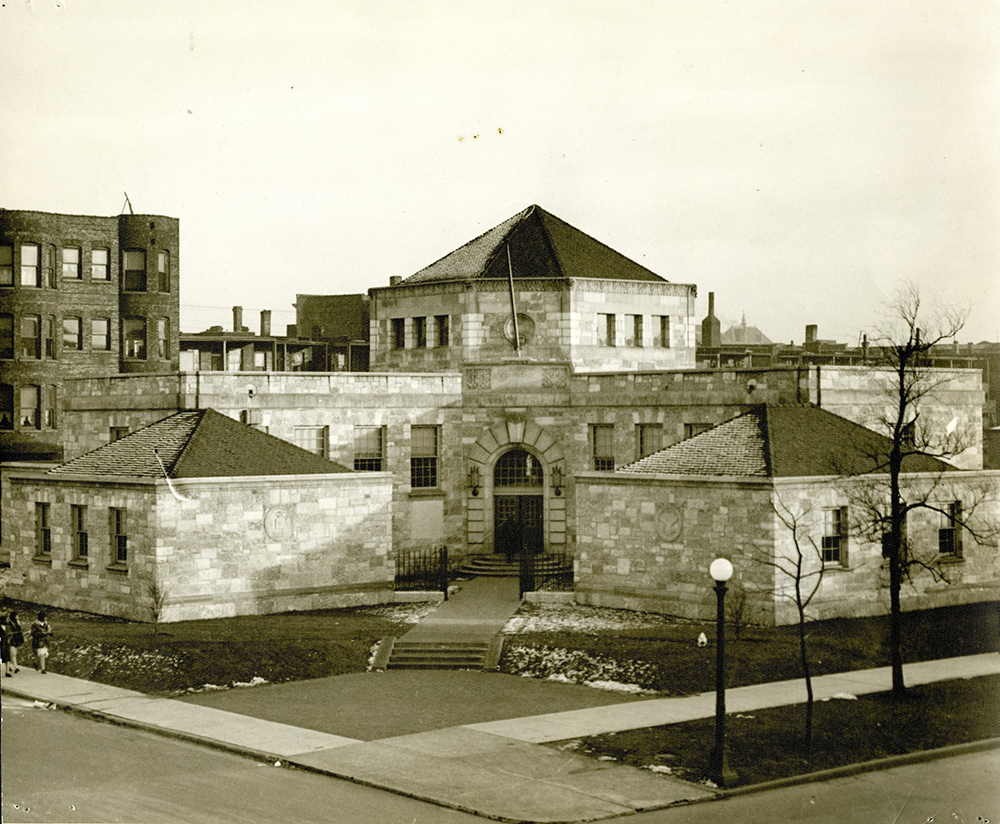
About
The George Cleveland Hall Branch Archives contain materials related to the operation of Chicago Public Library’s Hall Branch, opened in 1932. The branch is named after prominent African American physician, activist and leader George Cleveland Hall.
The Hall Branch Archives contain annual reports, branch bulletins, programs, fliers and memos from 1932 through the 1970s. The majority of objects displayed were created during the tenure of branch head Vivian G. Harsh. Harsh is well-remembered not just as CPL’s first African American branch head, but for her dedication to social outreach and the study of history and literature.
During the 1930s and 1940s, Hall Branch became a magnet for Chicago’s African American writers, artists and scholars, and the general public. Harsh launched the Book Review and Lecture Forum, a semimonthly event designed to bring library patrons together with speakers on topics in Black history, literature and current events. Harsh cultivated an impressive constellation of African American presenters, including Richard Wright, Langston Hughes, Zora Neale Hurston, Arna Bontemps, Gwendolyn Brooks, Margaret Walker, Horace Cayton, William Attaway, Alain Locke and St. Clair Drake.
The George Cleveland Hall Branch Archives are housed in the Vivian G. Harsh Collection of Afro-American History and Literature at Woodson Regional Library.
Questions or concerns about rights and access to this digital collection? See our Copyright and Takedown Policy.
This digital collection is made possible by a generous Illinois History-Digital Imaging Grant (awarded in 2018) from the Illinois State Library, Office of the Illinois Secretary of State.
Acknowledgment of Harmful Materials
Chicago Public Library collects images, documents and other archival materials from different communities and time periods to preserve and make available the cultural and historical record. As historical objects, some of these materials contain harmful or disturbing content. CPL presents these artifacts as an unfiltered social record and does not endorse the views expressed therein.

